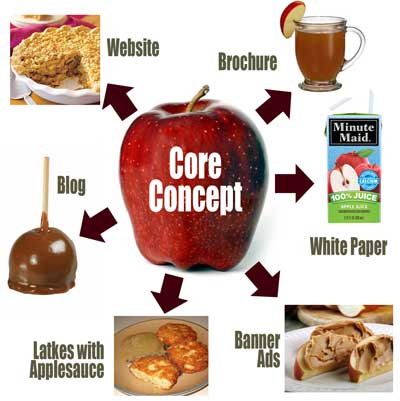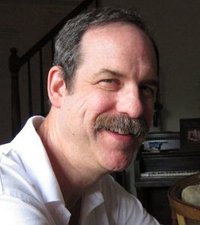Dear Mr. Communicator: Should I blog? Should I be on Twitter? — an executive looking for inspiration

Use your Fundamental Idea as the key ingredient, whether the recipe is for a blog, a website a company brochure or a white paper. If you get this right, you deserve latkes — potato pancakes — with applesauce (lower left).
When clients ask me these questions, the answer is almost always, “do you have something to say?” In other words, if you don’t have a message — a Core Concept — it’s fairly useless to worry about how you’ll deliver it.
To the business owner who dreams of getting a lot of “likes” on his Facebook postings, the concept of a message strategy can seem a bit foreign. So I illustrate it by talking about my favorite topic: dessert.
Lately, as I have been having occasional business meetings at Baker’s Square – for their free wireless Internet, of course – I’ve been thinking about pies.
Should I have Country Apple, French Apple or Apple Cinnamon? Should I accompany the pie with a cup of apple-flavored herbal tea?
They’re all different formats of apples, and obviously they couldn’t exist without the apple.
(At about this point, it should occur to you that in my fruit-flavored analogy, the apple represents the Core Concept. Clever, no?)
Let’s expand the analogy to include just plain apple slices, apple slices with peanut butter, apple slices in a salad, applesauce (on potato pancakes, of course), apple cider and taffy apples (a favorite of both my wife, Estee, and my daughter, Lia).
Before Blogging, Know Your Basic Message
If you don’t have an apple – a Core Concept – you’ll have a hard time coming up with something to blog about on a regular basis.
But if you have a basic message, or a perspective on your business, you’ll never run out of topics.
Continue reading







